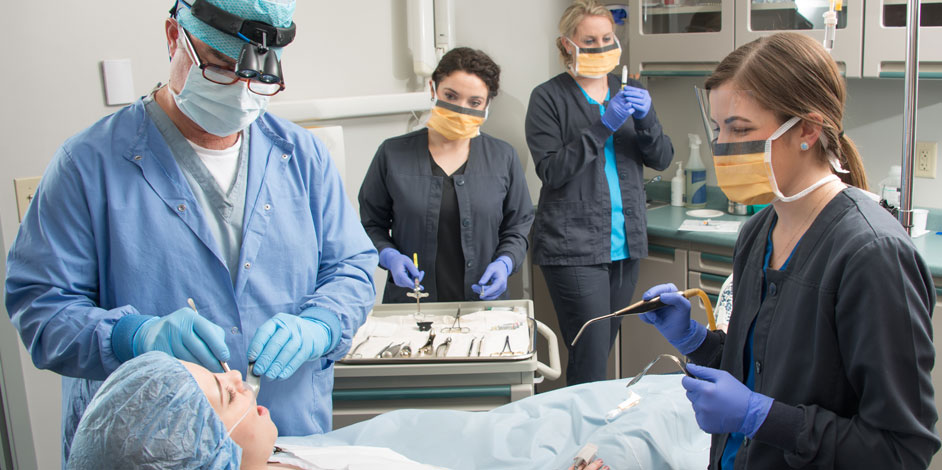
Wisdom teeth (or third molar teeth) usually come during a person's mid-late teens through their 20s. Oral and maxillofacial surgeons can help you determine when and if to remove these teeth, and perform the procedure.
To learn more on our wisdom teeth review the frequently asked questions below.
What teeth make up wisdom teeth?
Wisdom teeth are mandibular and maxillary third molars.
Why would a patient have his wisdom teeth removed?
Your jaw may not be large enough for them, and they may become impacted and unable to break through your gums. Your wisdom teeth may break partway through your gums, causing a flap of gum tissue to grow over them. Food and germs can get trapped under the flap and cause your gums to become red, swollen, and painful. These are signs of infection. More serious problems can develop from impacted teeth, such as infection, damage to other teeth and bone, or a cyst. One or more of your wisdom teeth may come in at an awkward angle, with the top of the tooth facing forward, backward, or to either side.
When should you have your wisdom teeth removed?
It isn't wise to wait until your wisdom teeth start to bother you. In general, earlier removal of wisdom teeth results in a less complicated healing process.The AAOMS/OMSF study strongly recommends that wisdom teeth be removed by the time the patient is a young adult in order to prevent future problems and to ensure optimal healing.The researchers found that older patients may be at greater risk for disease, including periodontitis, in the tissues surrounding the third molars and adjacent teeth. Periodontal infections, such as those observed in this study, may affect your general health.
Should I get them all out at once?
Removing all 4 wisdom teeth at once is reccomended. One surgical procedure. Cost is lower than having them removed seperately.
What are a patients options for replacing wisdom teeth?
As adults we have three molar teeth and we do most (about 80%) of our chewing from the first molar to the first bicuspid/canine area. About 20% is done in the second molar area, and very little is done in the wisdom teeth area. Therefore, we seldom miss or need our wisdom teeth if they are absent or removed. The second molar does at times need replacing, depending on each individual's situation.
Is there a recovery period?
Yes
How long is the recovery period?
Ususally a few days
What are the post operative instructions after wisdom tooth removal?
In most cases, the recovery period lasts only a few days. Take painkillers as prescribed by your dentist or oral surgeon. The following tips will help speed your recovery.
Bite gently on the gauze pad periodically, and change pads as they become soaked with blood. Call your dentist or oral surgeon if you still have bleeding 24 hours after your surgery.
While your mouth is numb, be careful not to bite the inside of your cheek or lip, or your tongue.
Do not lie flat. This may prolong bleeding. Prop up your head with pillows.
Try using an ice pack on the outside of your cheek for the first 24 hours. You can use moist heat-such as a washcloth soaked in warm water and wrung out-for the following 2 or 3 days.
Relax after surgery. Physical activity may increase bleeding.
Eat soft foods, such as gelatin, pudding, or a thin soup. Gradually add solid foods to your diet as healing progresses.
Do not use a straw for the first few days. Sucking on a straw can loosen the blood clot and delay healing.
After the first day, gently rinse your mouth with warm salt water several times a day to reduce swelling and relieve pain.
Do not smoke for at least 24 hours after your surgery. The sucking motion can loosen the clot and delay healing. In addition, smoking decreases the blood supply and can bring germs and contaminants to the surgery area.
Avoid rubbing the area with your tongue or touching it with your fingers.
Continue to brush your teeth and tongue carefully.